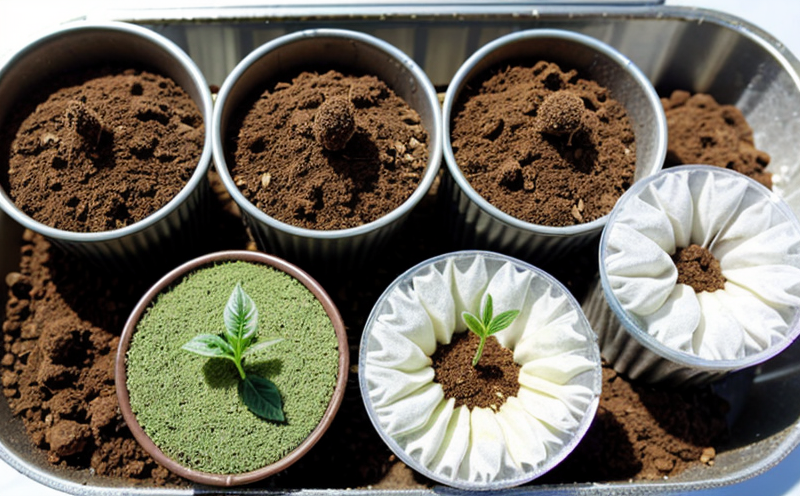Seed Health Testing for Pathogens Validation Method Development Test
The process of seed health testing is a critical component in ensuring agricultural productivity and sustainability. Seed quality directly impacts crop yield, resilience to environmental stresses, and overall food security. In this context, the validation method development test plays an instrumental role by identifying potential pathogens that could compromise seed viability and subsequent plant growth.
Our laboratory specializes in providing comprehensive seed health testing services for pathogens using advanced diagnostic methods such as PCR (Polymerase Chain Reaction), serological assays, and culture-based techniques. The goal is to provide accurate and reliable results that support the development of robust validation protocols. This service ensures that seeds meet stringent quality standards set by regulatory bodies like ISO or EN.
The testing procedure involves several key steps: sample collection from field locations, initial screening for common pathogens using rapid diagnostic tests, followed by confirmatory culture methods to isolate and identify specific microorganisms. Once identified, these pathogens are subjected to further analysis to determine their virulence factors and resistance profiles against various fungicides.
Our team of experts works closely with clients from the agricultural sector to tailor testing protocols that align with both internal quality control goals and external regulatory requirements. By validating our methods through rigorous validation studies, we ensure that the results obtained are reproducible and adhere to international standards like ISO 16140-2 for seed health assessment.
The importance of this service extends beyond just ensuring healthy seeds; it also contributes significantly towards sustainable agricultural practices by reducing the incidence of crop failures due to disease outbreaks. Furthermore, accurate pathogen identification helps in selecting appropriate genetic modifications or breeding programs aimed at enhancing resistance against harmful microorganisms without affecting plant productivity.
In addition to basic pathogen detection, our service offers advanced analytical capabilities including quantitative PCR (qPCR) which allows for precise quantification of pathogen presence within seeds. This information is invaluable when developing targeted fungicide treatment plans or assessing the effectiveness of breeding efforts aimed at improving disease resistance in future generations.
- Provides accurate and reliable seed health assessment
- Supports development of stringent validation methods
- Ensures compliance with international standards
- Contributes to sustainable agricultural practices
- Involves advanced diagnostic techniques like PCR, serological assays, culture-based methods
Applied Standards
The laboratory adheres strictly to international standards when conducting seed health tests for pathogens. These include ISO 16140-2 which specifies the procedure for assessing seed health in relation to specific diseases, and EN 1973:2015 that provides guidelines on sampling seeds intended for planting or propagation purposes.
For pathogen detection, we follow methods outlined in ISO 18664:2016 which covers molecular biology techniques used in seed health testing. Additionally, our laboratory complies with EU directives such as Regulation (EU) No 376/2014 concerning the marketing of seeds and plants.
These standards ensure that our tests are not only accurate but also consistent across different laboratories globally. Compliance with these regulations helps maintain confidence among stakeholders involved in seed production, distribution, and use.
International Acceptance and Recognition
The results from our laboratory's seed health testing services are widely accepted both domestically and internationally due to their high level of accuracy and reliability. Many countries recognize the findings derived from ISO-compliant laboratories like ours when making decisions about imported seeds or locally produced varieties.
Our clients benefit from this global recognition by ensuring that their products meet international standards, thereby enhancing market access opportunities in multiple regions. This is particularly important for companies exporting agricultural produce where compliance with foreign regulatory bodies' requirements can significantly impact business operations.
Environmental and Sustainability Contributions
- Promotes sustainable farming practices by reducing crop losses caused by diseases.
- Facilitates the use of precision agriculture techniques through accurate pathogen identification.
- Encourages breeding programs that enhance disease resistance without compromising yield.
- Aids in minimizing pesticide usage by identifying targeted treatments needed for control measures against pathogens.





